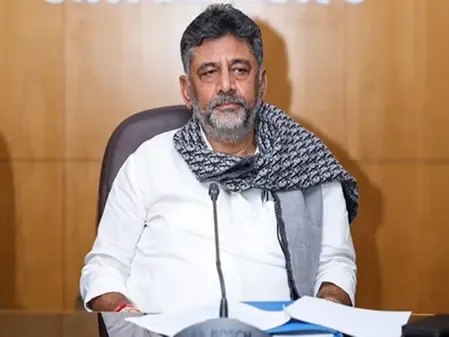How Are China's Export Restrictions on Magnets Affecting Indian Industries?

Synopsis
Key Takeaways
- China's export restrictions on rare earth magnets are impacting Indian industries.
- The government is evaluating the effects on electric vehicle manufacturers.
- Regular consultations with stakeholders are ongoing to address supply chain issues.
- Bilateral agreements with various countries are being pursued to diversify sources.
- KABIL is focused on acquiring overseas mineral assets of strategic importance.
New Delhi, Aug 19 (NationPress) The restrictions imposed by China on essential rare earth magnets are adversely affecting Indian industries, including those involved in electric vehicle production, as informed in Parliament on Tuesday.
In response to a query from AIMIM MP Asaduddin Owaisi during a Lok Sabha session, Minister of State for Commerce and Industry, Jitin Prasada, stated that the Ministry of Mines is actively working to bolster the supply chain resilience for critical minerals.
Owaisi inquired if the government has evaluated the potential repercussions of China's export limitations on rare earth magnets and associated materials on Indian sectors, particularly electric vehicle manufacturers.
The recent imposition of export limitations on key rare earth magnets by China has led to a supply chain bottleneck, negatively impacting Indian industries, including electric vehicle manufacturers. Regular consultations have been held with stakeholders to find solutions to this challenge,” the minister responded.
The Ministry of Mines has been dedicated to ensuring supply chain resilience for critical minerals, including Rare Earth Elements utilized in the production of rare earth magnets, which are vital for various sectors, including electric vehicles,” he added.
When asked if the government has undertaken measures to diversify the sources of rare earth magnets for Indian manufacturers to lessen reliance on Chinese suppliers, Jitin Prasada noted that, in pursuit of enhancing bilateral cooperation with nations rich in mineral resources, the Ministry of Mines has already established bilateral agreements with several countries including Australia, Argentina, Zambia, Peru, Zimbabwe, Mozambique, Malawi, Cote D’Ivoire, and international organizations such as the International Energy Agency (IEA).
Additionally, Khanij Bidesh India Limited (KABIL), a Joint Venture Company formed to identify and acquire overseas mineral assets of critical and strategic significance, is actively collaborating with various organizations from different countries,” he further explained.









